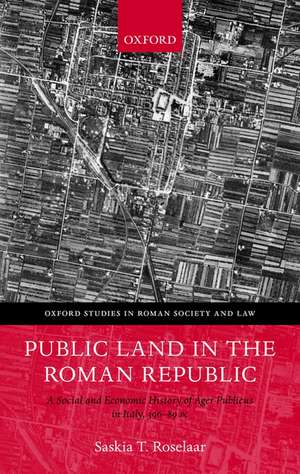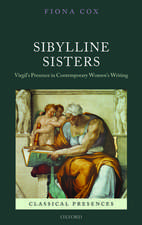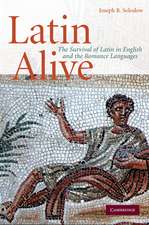Public Land in the Roman Republic: A Social and Economic History of Ager Publicus in Italy, 396-89 BC: Oxford Studies in Roman Society & Law
Autor Saskia T. Roselaaren Limba Engleză Hardback – 22 iul 2010
Preț: 1011.84 lei
Preț vechi: 1390.99 lei
-27% Nou
Puncte Express: 1518
Preț estimativ în valută:
193.62€ • 207.04$ • 161.43£
193.62€ • 207.04$ • 161.43£
Carte tipărită la comandă
Livrare economică 07-14 aprilie
Preluare comenzi: 021 569.72.76
Specificații
ISBN-13: 9780199577231
ISBN-10: 0199577234
Pagini: 380
Ilustrații: 15 in-text illustrations
Dimensiuni: 162 x 238 x 26 mm
Greutate: 0.76 kg
Ediția:New.
Editura: OUP OXFORD
Colecția OUP Oxford
Seria Oxford Studies in Roman Society & Law
Locul publicării:Oxford, United Kingdom
ISBN-10: 0199577234
Pagini: 380
Ilustrații: 15 in-text illustrations
Dimensiuni: 162 x 238 x 26 mm
Greutate: 0.76 kg
Ediția:New.
Editura: OUP OXFORD
Colecția OUP Oxford
Seria Oxford Studies in Roman Society & Law
Locul publicării:Oxford, United Kingdom
Recenzii
this book provides a most thorough and integrated synthesis of a crucial subject which is often taken for granted in our own narratives, but who detailed implications are only rarely fully appreciated. [Roselaar's] work is a very important one and will appeal not only to anyone interested in Roman Republican history and the archaeology of the Italian countryside, but also - and perhaps especially - to scholars of the Roman economy, a field where teh dynamic relationship between institutions and economic performance is increasingly being emphasized.





















